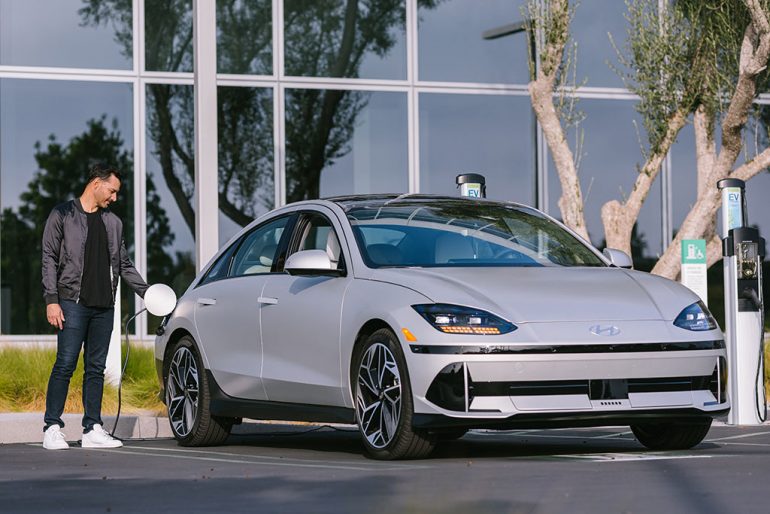We are living through an electrifying green wave in the United States. By 2030, sales of electric vehicles are predicted to account for 40% of all light vehicle sales; by the end of the decade, some forecasters even see that percentage surpassing 50%. Although it appears that the US will quickly switch from gas-powered to electric automobiles, Americans remain very doubtful about this change, according to recent polls from Yahoo Finance and Ipsos.
Consumers stated that factors including price, range, accessibility to charging stations, and environmental effect were important considerations when deciding between buying a plug-in hybrid or a completely electric car. In a poll conducted by Yahoo Finance and Ipsos, 1,025 Americans were asked about their preferences for buying electric vehicles. The survey was carried out from September 29, 2023, to October 1, 2023.
When it came to buying a car, 57% of respondents overall stated they were not inclined to buy an electric vehicle—which is classified as either a fully electric or plug-in hybrid. Merely 31% of participants expressed their likelihood to buy an electric car, whereas 11% expressed their ignorance.
According to the demographic split of respondents, 70% of those over 65 and 60% of those whose yearly income was less than $50,000 would not purchase an electric vehicle. Furthermore, 76% of Republicans who self-identified said they would probably not purchase an electric car.
When asked what is preventing customers from purchasing electric vehicles, Stephanie Valdez-Streaty, director of industry analytics at Cox Automotive, told Yahoo Finance, “I think there’s a lot of different factors.” “I think it’s price, it’s infrastructure; I think that range anxiety is really infrastructure anxiety.”
In a Yahoo Finance/Ipsos survey, 70% of participants expressed their concerns about the total cost of purchasing an electric car, 73% about driving distance, and 77% about the dearth of charging stations either at home or on the road.
According to Valdez-Streaty, state incentives and education regarding them play a significant role in the variations between states, with some performing better than others in spreading the word. In fact, just 30% of poll participants are aware of government incentive programmes like the federal EV tax credit, despite the fact that 52% of respondents favour such initiatives to promote EV purchases.
When it comes to government programmes, there is more ambiguity as evidenced by the fact that while 54% of those surveyed supported government initiatives aimed at reducing the nation’s reliance on fossil fuels, nearly two-thirds (61%) disagreed with restrictions on the sale of brand-new gas-powered vehicles.
On the other hand, individuals in the 35–49 age group were the most likely to say they would buy an EV or hybrid (37%), and 42% of respondents who earned more than $100,000 were also likely to say they would buy an EV. Regarding party affiliation, 41% of Democrats and only 17% of Republicans would buy electric cars, respectively.
If asked which automakers they would consider buying an electric vehicle from, the respondents likewise expressed significant preferences. Toyota (TM) is the most likely electric vehicle that nearly one-third (30%) would choose, followed by Tesla (TSLA) at 23%, Honda (HMC) at 20%, GM (GM) at 15%, and Ford (F) at 14%.
According to Valdez-Streaty, price is a major factor in EVs’ increased attraction to US customers. “Affordability is critical,” she stated, adding that the federal tax credit is a fantastic incentive even though it currently only applies to fewer than a dozen cars, though that list will grow. “As we start to see more affordable vehicles under the $40,000 price point and more that are eligible for that EV credit, that’s going to be important.”
In fact, only 20% of purchasers are aware of the recent price reductions for electric cars, mostly from Ford and Tesla. Similarly, only 20% are aware of the recent charging agreements that, among other things, will allow Tesla to expand its Supercharging network to include EVs manufactured by GM, Ford, Mercedes, and other manufacturers, resolving another significant concern for
purchasers, which is range anxiety and charging infrastructure.

